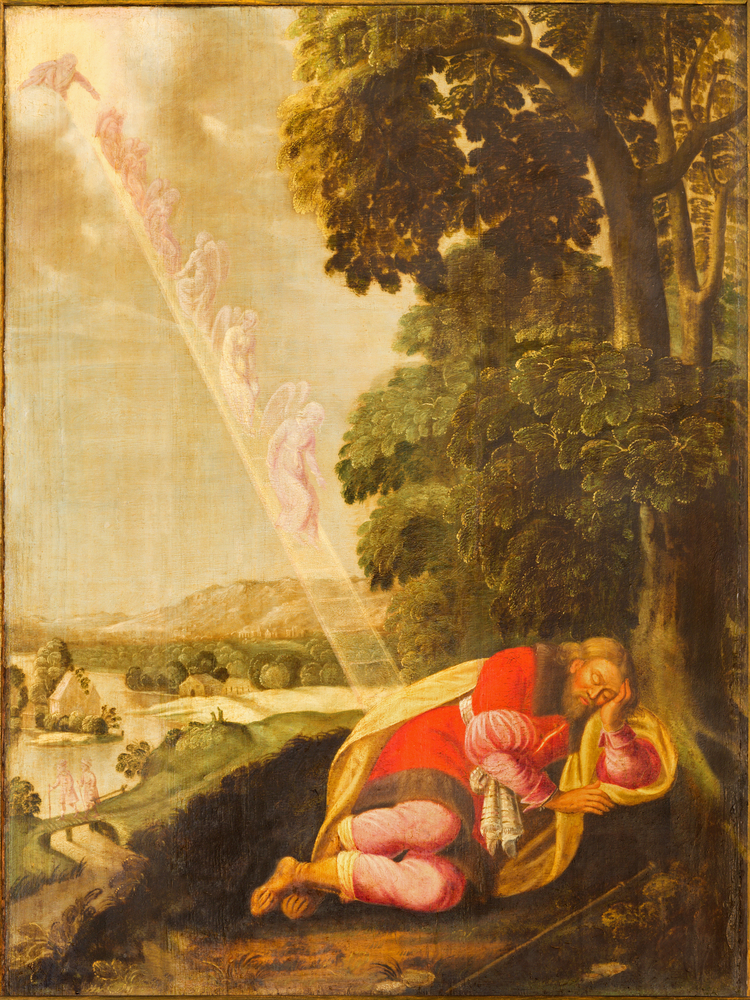Oskar Schindler was a faithful hedonist. This paradox was right up the biblical alley. He was a man to whom the Jewish imagination could relate; well, that was before Helenist Jews turned the God of the Hebrews into a Greek revelation.

Schindler was in a lot of ways the sort of person God has spent the past 6,000 years exhorting us not to be. His love for alcohol was only matched by his lust for women. Both of these combined didn’t come close to his capacity for war profiteering. His laziness and folding of hands was equalled by his capacity to put others’ hands to the grind – especially if they were free, Jewish labour indentured from concentration camps. He acquired great wealth on the back of the holocaust.
On the flip side however, he was full of traits God desires in us: compassion, empathy and acts of loving kindness. His largeness of heart was legendary. He made an effort to infuse a modicum of humanity in some of the Nazi officers he befriended, risking being labelled a Jew sympathiser. He applied so much of his wealth to saving Jewish lives from certain death that, at the end of the war, all he had left were the clothes on his back and his wedding ring. From some place deep within, he called up enough light to subvert the mire within which he wallowed.
God’s engagement with His creation is all about purpose.
In Steven Spielberg’s account of Schindler’s story, it is reckoned that the number of Jews Schindler saved and their descendants outnumbered the rest of the Hungarian Jewish population. The state of Israel honoured him as a ‘righteous gentile’ and planted a tree in his memory. He failed at almost every endeavour except at that which mattered most.
How could such a duality dwell in a person? The Bible has an angle on that one. His name was Jacob, or Israel depending on which side of the bed he woke up. As Israel, he carried within him enough blessing to impact the world, but as Jacob he wanted only to live for himself. When God visited to reveal to him his calling, Jacob was having none of it.
God said:
“…In thee and in thy seed shall all the families of the earth be blessed.“[1]Genesis 28:14
But Jacob responded:
“And Jacob vowed a vow, saying, If God will be with me, and will keep me in this way that I go, and will give me bread to eat, and raiment to put on, So that I come again to my father’s house in peace; then shall the LORD be my God.”[2]Genesis 28:20
God’s vision for him was about his task in the world. His preoccupation was simply with himself. He did everything possible to make himself unworthy of God’s calling. He failed to have compassion on his famished, weary brother, but seized on a moment of desperation to gazump his brother’s birthright. He took advantage of his father’s handicap, deceiving an old, blind man to force upon himself someone else’s destiny.[3]Genesis 25:29-40
But God wouldn’t back off. God met him, wrestled with him and broke him, literally and spiritually. And by a dint of divine muscle-flexing, God turned Jacob into Israel,[4]Genesis 32:24-28 or so we say!
From Joseph through whom God saved the ancient world from famine, to Daniel who counselled Nebuchadnezzar, and on to Jesus Christ who brought salvation to humanity, Israel’s children have brought blessings to the world.
Throughout scripture, the Good Book oscillates between the two names. He and his descendants are at times called Jacob and at other times Israel. It is this duality that we see in Schindler. It is a duality epitomised in Jacob’s ladder, the vision in which Jacob saw angels ascending and descending a ladder.[5]Genesis 28:10-12 Whereas God revived an upward bound power within Jacob, there remained elements within him that were always on a downward trajectory.
Either way, by virtue of the calling of God upon his life, he became one of the most affective characters the world has known. From Joseph through whom God saved the ancient world from famine, to Daniel who counselled Nebuchadnezzar, and on to Jesus Christ who brought salvation to humanity, Israel’s children have brought blessings to the world.
Question is: what kept God going? Why did God not give up on Israel on occasions when he reverted to Jacob? Is it simply, as St Paul wrote, because God’s calling is without repentance?[6]Romans 11:29 Or is that God does not dispose of the baby with the bath water? We may never know as we can’t answer for God. But God working through conflicted humans to do great things in the world is well and truly explored by scripture.
That’s what makes the Hebrew scriptures peculiarly authentic. From the very onset, the Bible tells us that, however well fashioned, we’re nonetheless lumps of clay infused with the divine essence. At times we stand firmly, at other times we fall apart. Through the Jewish patriarchs such as Aaron, David and Jeremiah, the Hebrew scriptures highlight and doesn’t deny these people’s flawed humanity. They were mere men and women summonsed by the Holy Spirit to be holy, but not superhuman. With each of these characters God wrestled.
Most of them admitted to lacking the qualities required to be who God called them to be. Moses said he was slow of speech.[7]Exodus 4:10 Jeremiah said he was only a child.[8]Jeremiah 1:6 Gideon said his pedigree was the least of the smallest tribes in Israel.[9]Judges 6:15 But God was like: we could do this the easy way or the hard way, but either way, you would be whom I called you to be, doing what I called you to do![10]Jeremiah 1:17
Through the Jewish patriarchs such as Aaron, David and Jeremiah, the Hebrew scriptures highlight and doesn’t deny these people’s flawed humanity.
All those named in the previous paragraph belonged to a faith community. They had some idea about God and what His expectations might be. As with Schindler, there’s a legendary character in scripture who didn’t know God but had the divine anointing coursing through his every pore. His name was Cyrus.
Cyrus was the Persian emperor who humbled Babylon and commissioned the rebuilding of Solomon’s temple. Did he do it for the love of Jehovah? No. He was a syncretic idol worshipper. He had no conflict of religious interests. In fact, whatever anyone called a god, Cyrus worshipped it. However, as spiritually compromised as Cyrus was, he remained God’s peculiar vessel. What more he had no clue he held a special place in God’s schemes.[11]Isaiah45:13 Frankly God admitted that Cyrus didn’t know Him.[12]Isaiah 45:5
Nonetheless, to paraphrase Apostle Paul, God was all the while working in Cyrus both to will and to do according to His good purpose. [13]Philippians 2:13 God does not do religion. He is about purpose. When he spoke of faith, he didn’t mean hands in the air swaying and worshipping. He meant emunah.
Emunah is the Hebrew word that St Paul roughly translated to the Greek word pistis and came down to us as ‘faith’. Emunah does not mean belief in anything nor intellectual accent to any concept. It means faithfulness, steadfastness, dependability. These qualities are required in those on whose shoulders God would anchor his purposes.
Being a member of faith community does not guarantee that one is possessed of these qualities. Lacking membership of a faith community does not rule one out of possessing them either.
God’s engagement with His creation is all about purpose. There’s a dimension to this engagement that’s not accorded the level of significance it warrants. Pre-ordination. There are aspects of scripture that claim that we have to tick certain boxes to qualify for divine office.[14]2 Timothy 2:21Not only do the examples of Cyrus and Jacob challenge that notion, but the attribute the angel attached to Jacob suggests a pre-mortal dimension to one’s calling. In the KJV version, the angel says:
“And he said, Thy name shall be called no more Jacob, but Israel: for as a prince hast thou power with God and with men, and hast prevailed.”[15]Genesis 32:28
God will not give up on you until you become who He needs you to be!
Abraham was not a king, nor was Isaac. Why then did the angel call Jacob a Prince? Isaiah prophesied about Cyrus at least a century before Cyrus was born, saying that God surnamed Cyrus![16]Isaiah 45:4 And of the Prophet Jeremiah, the Lord said:
“Before I formed thee in the belly I knew thee; and before thou camest forth out of the womb I sanctified thee, and I ordained thee a prophet unto the nations.”[17]Jeremiah 1:5
It’s with regards to preordination that led St Paul to write that:
“For we are his workmanship, created in Christ Jesus unto good works, which God hath before ordained that we should walk in them.”[18]Ephesians 2:10
In and out of faith communities, He revives men and women who are faithful[19]Numbers 12:7 and dependable, no matter whatever baggage they bring with them, that they may become the persons that God intends them to be and fulfilling their purposes. He purges the dross so that they may sparkle. He pulverises the Jacob in us that our Israel may breakthrough.
God will not give up on you until you become who He needs you to be!
References
| ↑1 | Genesis 28:14 |
|---|---|
| ↑2 | Genesis 28:20 |
| ↑3 | Genesis 25:29-40 |
| ↑4 | Genesis 32:24-28 |
| ↑5 | Genesis 28:10-12 |
| ↑6 | Romans 11:29 |
| ↑7 | Exodus 4:10 |
| ↑8 | Jeremiah 1:6 |
| ↑9 | Judges 6:15 |
| ↑10 | Jeremiah 1:17 |
| ↑11 | Isaiah45:13 |
| ↑12 | Isaiah 45:5 |
| ↑13 | Philippians 2:13 |
| ↑14 | 2 Timothy 2:21 |
| ↑15 | Genesis 32:28 |
| ↑16 | Isaiah 45:4 |
| ↑17 | Jeremiah 1:5 |
| ↑18 | Ephesians 2:10 |
| ↑19 | Numbers 12:7 |


